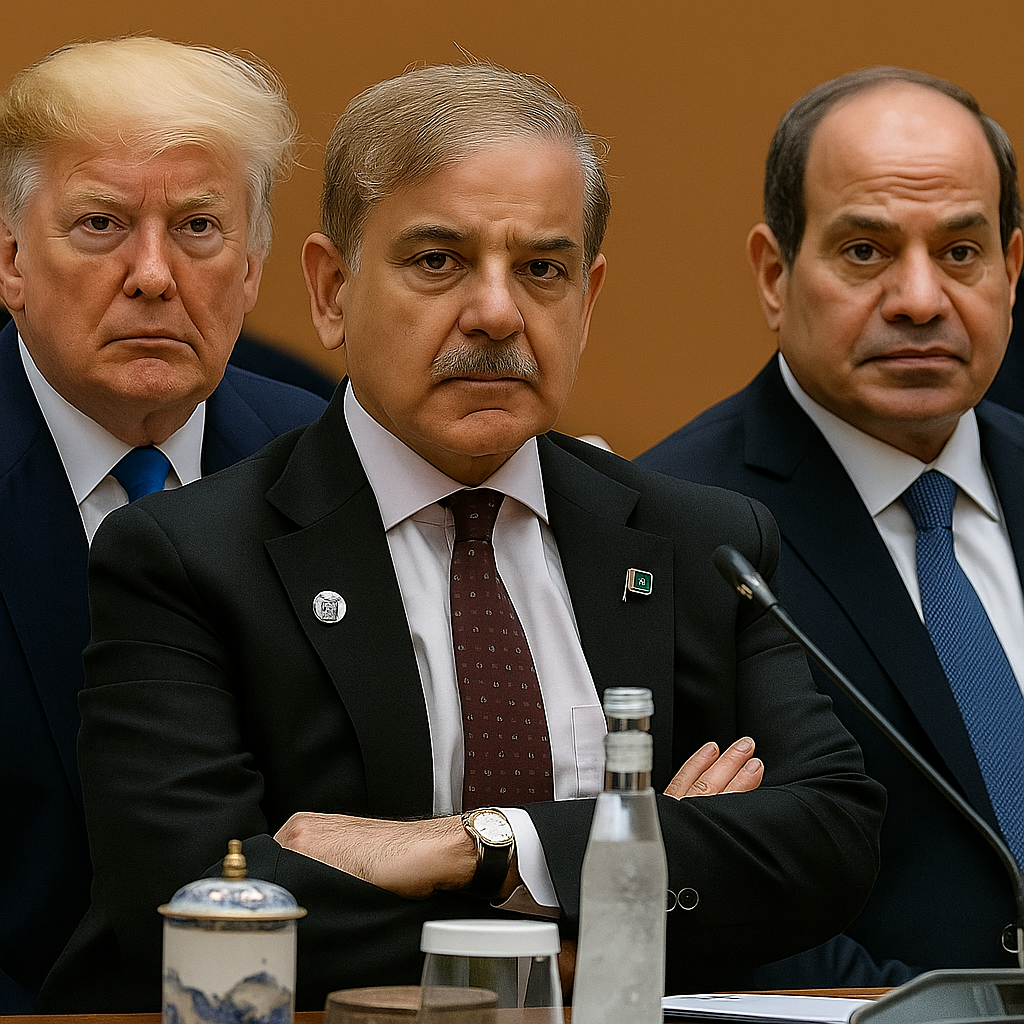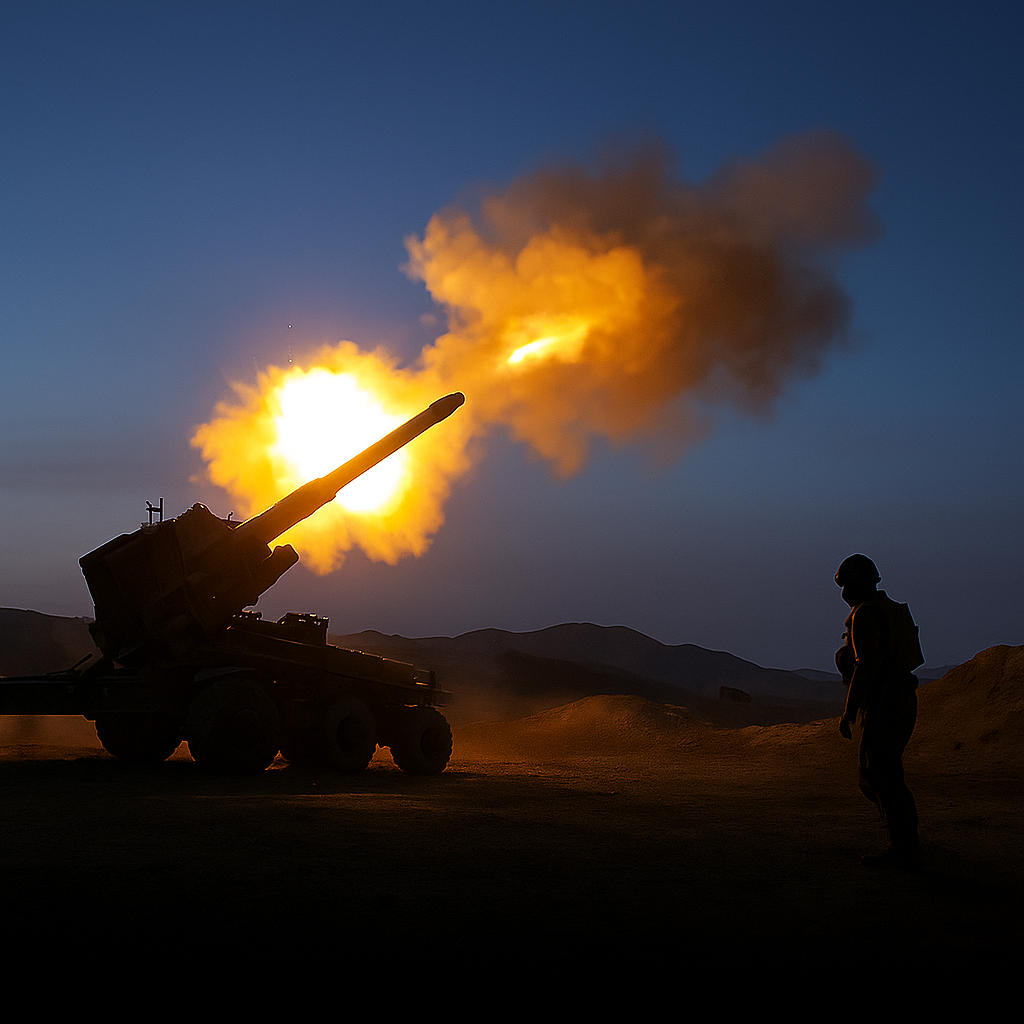PM in Sharm El-Sheikh: Pakistan Joins Historic Gaza Peace Signing — A Deep Dive
Prime Minister Shahbaz Sharif’s trip to Sharm El-Sheikh to join a high-profile international summit for the signing of a Gaza peace framework marks one of Islamabad’s most consequential diplomatic engagements in years. The gathering, convened by multiple global and regional leaders, aims to solidify a ceasefire, outline a reconstruction plan for Gaza and set a political roadmap intended to revive Palestinian statehood prospects. Pakistan’s decision to participate reflects a deliberate strategy to remain central to Muslim-majority diplomacy while seeking leverage in an increasingly complex regional chessboard.
This is a thorough, on-the-record and analytical unpacking of what the summit is, what Pakistan hopes to gain, who stands to win or lose, likely contents of any accord, the implementation hurdles, the geopolitical ramifications, and plausible scenarios that could unfold after the signing.
What the summit intends to achieve — substance over ceremony (and where it likely falls short)
The meeting in Sharm El-Sheikh is best understood as a multi-track attempt to convert a fragile wartime pause into a durable political arrangement. Key pillars likely to appear in the final document:
- Immediate and verifiable ceasefire arrangements with timelines and monitoring mechanisms.
- Phased Israeli withdrawal or redeployment commitments from Gaza, linked to security guarantees.
- Humanitarian access and relief corridors with an urgent tranche of emergency aid.
- A comprehensive reconstruction plan for Gaza’s infrastructure — housing, power, water, health and schools — financed by an international donors’ consortium.
- A political process framework setting out steps toward a negotiated Palestinian polity, including benchmarks toward a two-state solution, interim governance arrangements and a roadmap for Palestinian elections and representation.
- Security architecture involving third-party monitors, potentially including regional actors or UN mechanisms, to oversee ceasefire compliance and reconstruction security.
- Accountability and transitional justice language — likely to be carefully worded so as not to provoke immediate rejection — establishing mechanisms for investigations into wartime abuses and property restitution schemes.
Important caveat: with neither Israel nor Hamas present as full negotiating parties at the table, any document risks being aspirational rather than legally binding. The summit’s text will almost certainly depend on subsequent buy-in from those actors or else hinge on inducements and pressure from influential patrons.
Why Pakistan is participating — strategic and domestic rationales
- Staying relevant in Muslim-majority diplomacy. Pakistan has a longstanding rhetorical commitment to the Palestinian cause. Joining a major diplomatic effort reinforces its image as a principled participant in Muslim world politics, not a bystander.
- Diplomatic leverage and access. Being present gives Islamabad channels to high capitals — Washington, Cairo, Ankara, Riyadh and key European capitals — which it can use to press for clauses favorable to Palestinian self-determination and to secure development or economic cooperation for Pakistan.
- Domestic politics and legitimacy. Support for Palestine resonates strongly at home across party lines and social strata. The government can demonstrate it is acting, not just voicing sympathy.
- Economic and security opportunities. Participation may unlock development funding, trade initiatives, or security cooperation with sponsors and signatories—valuable for a country juggling fiscal pressures and security challenges.
What Pakistan is likely to push for (and why)
- Clear guarantees for Palestinian civilian protection and unambiguous language about preventing forced displacement. This aligns with Pakistan’s domestic constituency and international posture.
- A reconstruction financing package with lender coordination that prevents corruption and ensures donor funds reach civilians. Pakistan’s own experience with large reconstruction projects gives it standing to argue for efficient oversight.
- Reference to internationally recognized parameters for Palestinian statehood, including calls for negotiations based on pre-1967 borders and Al-Quds as the Palestinian capital — wording that preserves Pakistan’s principled stance while leaving room for diplomacy.
- Inclusion of Muslim and Arab stakeholders in monitoring roles, to ensure regional buy-in and to keep Western domination of the process in check.
The donors’ dilemma: money, conditions and conditionalities
Reconstruction will be costly. Donor states will attach conditions: anti-corruption safeguards, phased disbursement tied to security benchmarks, and strict procurement rules. The fragility of Gaza’s local governance — heavily damaged institutions, contested authority, and competing security actors — will complicate fund flows, requiring layered governance arrangements: an international reconstruction authority, local implementing partners and robust civil society participation.
Pakistan’s voice at the summit will likely emphasise rapid, unconditional humanitarian relief in the short term while supporting robust oversight for reconstruction funds to avoid diversion and politicization.
Security architecture — the real test
Any sustainable peace depends on who guarantees security and how violations are handled. Possible components include:
- Multinational monitoring missions limited in scope (ports, border crossings, aid depots).
- A phased security handover with timelines tied to verified demobilization of militias and disarmament programs.
- Cooperation with regional security services to prevent cross-border militant flows and to stabilize border zones.
- Clear red lines and sanctions for actors who breach the accord.
But: deploying monitors, guaranteeing disarmament and managing spoilers will require real political will — something the signatories must demonstrate quickly.
Geopolitics: winners, losers and shifting alignments
- Potential winners: Donor states and regional actors who can showcase leadership; Palestinian civilians if the accord translates into sustained aid and reconstruction; states seeking to normalize relations or reduce instability in their neighborhoods.
- Potential losers: Parties excluded from meaningful participation (notably Hamas if sidelined) and actors who see their influence decline (states that preferred a different course).
- Middle powers to watch: Egypt and Jordan — both have border management and host responsibilities — stand to increase diplomatic capital if they manage the transition well. Turkey and Qatar, both influential with Palestinian factions, may seek to safeguard their roles. Iran will watch closely and could react diplomatically or through proxies if it perceives exclusion or defeat of its strategic interests.
Pakistan’s participation aims to position it among the first group — visible, relevant and constructive — but it must navigate relations with regional heavyweights concurrently.
Implementation risks — why signing won’t equal peace
- Absence of principal combatants at the table. Without comprehensive buy-in from Israel and Hamas, enforcement becomes highly problematic.
- Spoiler risks. Actor groups may act to derail progress if their interests are threatened.
- Fragmented Palestinian governance. Institutional capacity to absorb and manage large inflows is limited.
- Security relapse. Any spike in violence can unravel reconstruction plans and donor confidence.
- Donor fatigue and conditionality. If donors perceive slow progress or misuse, funding could be curtailed.
- Regional rivalry. Competing agendas between regional powers could translate into proxy tensions on the ground.
Scenarios after the signing — short, medium and long term
Best-case (optimistic)
- A verifiable ceasefire holds. An internationally managed reconstruction authority rapidly rebuilds critical infrastructure. Over 12–24 months, Gaza stabilizes enough for a credible political process to reopen, with elections and a monitored security transition.
Middle ground
- Ceasefire holds intermittently. Reconstruction is slow, donor money arrives but is tightly controlled. Political negotiations resume after protracted shuttle diplomacy. Localized violence persists, but large-scale war is avoided.
Worst-case (pessimistic)
- Ceasefire collapses within months. Reconstruction stalls due to insecurity and governance gaps. Donors disengage. The region slides into renewed instability and international credibility suffers.
Domestic political angle — how Pakistan will sell this at home
The government will present participation as active solidarity — an assertion of Pakistan’s moral and diplomatic credentials. Opposition and civil society will judge success by tangible outcomes: real humanitarian relief, visible reconstruction in Gaza, and a return (or strengthened) commitment to Palestinian self-determination. Failure to secure concrete benefits may give critics ammunition to argue that high-profile diplomacy delivered symbolic optics but little substance.
What Pakistan should demand next — a checklist
- Clear, time-bound benchmarks for ceasefire verification and troop redeployment.
- A donors’ compact that commits funds up front with anti-fraud and transparent procurement safeguards.
- Mechanisms for Palestinian political representation in reconstruction oversight.
- An investment in capacity building for Gazan institutions to manage reconstruction and services.
- Contingency measures to protect civilians and aid workers in case of renewed hostilities.
- A diplomatic follow-up role for Pakistan — not just a signatory but an active participant in arbitration, monitoring, or confidence-building.
Humanitarian realities — what must not be sidelined
Even a carefully worded political document will fail unless immediate needs are addressed: food, clean water, shelter, medical care and psychosocial services. Rebuilding hospitals, schools, water networks and electricity must be prioritized alongside demining and clearing rubble so that Gaza’s population can return to daily life. Pakistan’s appeals in Sharm El-Sheikh will likely emphasize the urgency of these humanitarian priorities.
Final read: a pragmatic hope tempered by realism
Pakistan’s presence at the signing in Sharm El-Sheikh is a calculated step: principled, strategic, and domestically resonant. The summit itself will produce a document that can serve as a focal point for international mobilization — but the signature will not, on its own, guarantee peace. Real progress will require sustained donor commitment, credible security guarantees, honest engagement from the principal parties on the ground, and an effective mechanism to translate pledges into houses rebuilt, schools reopened, and livelihoods restored.
For Pakistan, the risk-reward calculation is clear: stay out and lose diplomatic ground, or engage and risk association with a symbolic accord that fails. Islamabad has chosen engagement. The test now is whether participation translates into concrete outcomes for Gaza’s people — and whether Islamabad can leverage its presence into constructive follow-through rather than mere pageantry.



